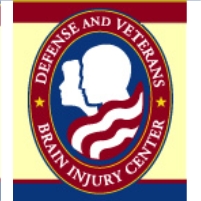212,000 U.S. Veterans Have Traumatic Brain Injuries
Thursday, June 23, 2011

After nearly a decade of fighting a two-front war, the United States is faced with caring for more than 212,000 veterans suffering from some form of traumatic brain injury (TBI).
The vast majority of these cases originated in the U.S. Army, where 121,658 cases of TBI have been recorded. The remainder is almost evenly spread among the Marine Corps (30,732), the Navy (30,411) and the Air Force (29,941).
Of the total, 3,573 are classified as “penetrating,” meaning an open head wound. Another 2,235 were deemed “severe,” which is defined by the Armed Forces Health Surveillance Center as characterized by “A confused or disoriented state which lasts more than 24 hours; loss of consciousness for more than 24 hours; memory loss for more than seven days; and structural brain imaging yielding normal or abnormal results.”
Although another 35,661 cases are classified as “moderate,” the term is a bit misleading. A moderate traumatic brain injury can lead to a confused or disoriented state for more than a day, loss of consciousness for up to 24 hours, memory loss for between one and seven days and abnormal results of brain imaging.
While it is assumed most of the brain injuries occurred from exposure to combat, the military can’t say for sure if this has been the case—because its medical system does not record the cause of head injuries or the location they occurred.
Caring for so many veterans with TBI will be a challenge for the nation, says Bobby Muller, president of Veterans for America. “We are facing a massive mental health problem as a result of our wars in Iraq and Afghanistan,” he said. “As a country we have not responded adequately to the problem. Unless we act urgently and wisely, we will be dealing with an epidemic of service-related psychological wounds for years to come.”
-Noel Brinkerhoff, David Wallechinsky
TBI Numbers By Severity – All Armed Forces (Armed Forces Health Surveillance Center) (pdf)
Epidemic: Over 400,000 Traumatic Brain Injuries for Vets Coming from Iraq and Afghanistan (by Conn Hallinan, AlterNet)
DoD Worldwide Numbers for TBI - FAQs (Defense and Veterans Brain Injury Center)
Marine Father and Son Both Receive Traumatic Brain Injuries in Iraq (by Noel Brinkerhoff, AllGov)
Pentagon Ignores Congressional Order on Brain Tests for Returning Troops (by Noel Brinkerhoff, AllGov)
- Top Stories
- Unusual News
- Where is the Money Going?
- Controversies
- U.S. and the World
- Appointments and Resignations
- Latest News
- Trump Renames National Football League National Trump League
- Trump to Stop Deportations If…
- Trump Denounces World Series
- What If China Invaded the United States?
- Donald Trump Has a Mental Health Problem and It Has a Name






Comments